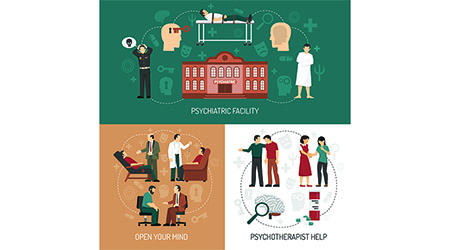Mental healthcare facilities have faced increased staffing shortages amid growing enrollment during the pandemic. Recently, several facilities in Virginia had to stop admitting new patients due to this issue. State psychiatric hospitals are under a great deal of pressure, and private, even residential, care facilities have helped to lighten the load. These types of facilities are able to offer the same types of service as state healthcare centers but in a different, more relaxed environment.
Consider the example of The Inn, a residential mental healthcare center near Austin, Texas, that is treating a large number of people experiencing homelessness and saving the local health care system millions of dollars per year, according to new research from the University of Texas at Austin. The Inn provides up to seven days of psychiatric care to adults dealing with mental health episodes.
The center, which is operated by Integral Care, saved its local health care system $1.87 million to $2.82 million annually from 2017 to 2019. The research compared the average price per mental health episode at a typical psychiatric hospital and a community hospital with the cost per episode at The Inn.
At a psychiatric hospital the price was $8,035 per episode; at a community hospital the price per episode was $6,832; and at The Inn it was $3,121. The research controlled variables such as length of stay and treatment type.
The Inn provides services related to regaining stability, medication, nursing services, alcohol and drug use recovery assistance and mental health support groups. While The Inn saves the local health care system money and resources, Integral Care does not benefit much from the savings due to the disconnected nature of how the system works. The Inn cared for 1,371 people in mental health crises during the period in which the research took place. 90 percent of these people lived below the federal poverty line and over half dealt with homelessness.
The Inn serves an important purpose as a residential crisis treatment center. Places like it are much less restrictive than state-run psychiatric facilities and give a homely experience to those receiving care. For Texas specifically, residential programs are a part of a continuing endeavour to redevelop the state's psychiatric care system.

 Regulations Take the Lead in Healthcare Restroom Design
Regulations Take the Lead in Healthcare Restroom Design AHN Allegheny Valley Hospital Opens Expanded Inpatient Rehabilitation Unit
AHN Allegheny Valley Hospital Opens Expanded Inpatient Rehabilitation Unit HSHS and Lifepoint Rehabilitation Partner on New Inpatient Rehab Hospital in Green Bay
HSHS and Lifepoint Rehabilitation Partner on New Inpatient Rehab Hospital in Green Bay Turning Facility Data Into ROI: Where Healthcare Leaders Should Start
Turning Facility Data Into ROI: Where Healthcare Leaders Should Start Sutter Health Breaks Ground on Advanced Cancer Center and Care Complex
Sutter Health Breaks Ground on Advanced Cancer Center and Care Complex